Samuel Stein
Comparing Quantum Encoding Techniques
Oct 11, 2024
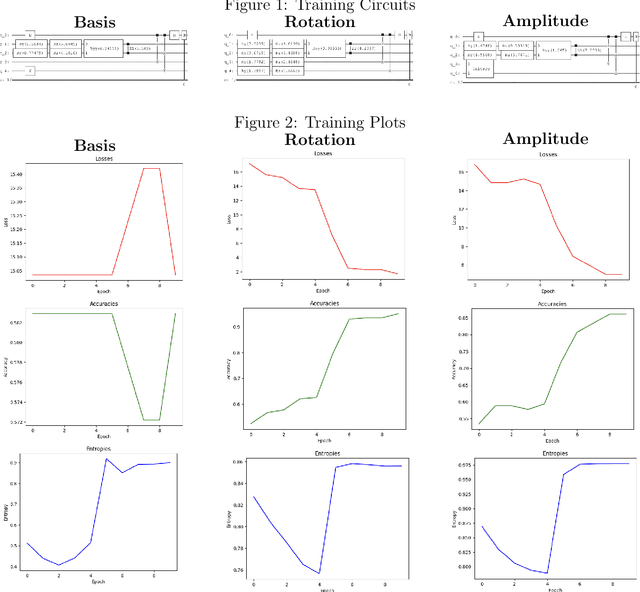

Abstract:As quantum computers continue to become more capable, the possibilities of their applications increase. For example, quantum techniques are being integrated with classical neural networks to perform machine learning. In order to be used in this way, or for any other widespread use like quantum chemistry simulations or cryptographic applications, classical data must be converted into quantum states through quantum encoding. There are three fundamental encoding methods: basis, amplitude, and rotation, as well as several proposed combinations. This study explores the encoding methods, specifically in the context of hybrid quantum-classical machine learning. Using the QuClassi quantum neural network architecture to perform binary classification of the `3' and `6' digits from the MNIST datasets, this study obtains several metrics such as accuracy, entropy, loss, and resistance to noise, while considering resource usage and computational complexity to compare the three main encoding methods.
A Quantum-Classical Collaborative Training Architecture Based on Quantum State Fidelity
Feb 23, 2024
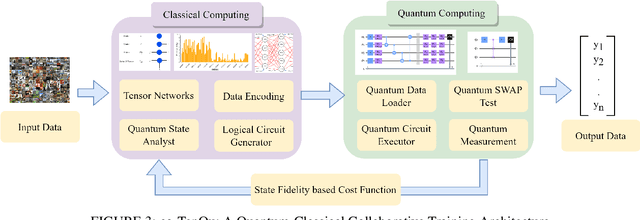


Abstract:Recent advancements have highlighted the limitations of current quantum systems, particularly the restricted number of qubits available on near-term quantum devices. This constraint greatly inhibits the range of applications that can leverage quantum computers. Moreover, as the available qubits increase, the computational complexity grows exponentially, posing additional challenges. Consequently, there is an urgent need to use qubits efficiently and mitigate both present limitations and future complexities. To address this, existing quantum applications attempt to integrate classical and quantum systems in a hybrid framework. In this study, we concentrate on quantum deep learning and introduce a collaborative classical-quantum architecture called co-TenQu. The classical component employs a tensor network for compression and feature extraction, enabling higher-dimensional data to be encoded onto logical quantum circuits with limited qubits. On the quantum side, we propose a quantum-state-fidelity-based evaluation function to iteratively train the network through a feedback loop between the two sides. co-TenQu has been implemented and evaluated with both simulators and the IBM-Q platform. Compared to state-of-the-art approaches, co-TenQu enhances a classical deep neural network by up to 41.72% in a fair setting. Additionally, it outperforms other quantum-based methods by up to 1.9 times and achieves similar accuracy while utilizing 70.59% fewer qubits.
GAAF: Searching Activation Functions for Binary Neural Networks through Genetic Algorithm
Jun 05, 2022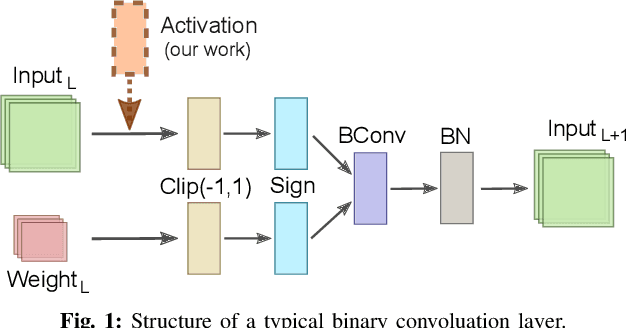
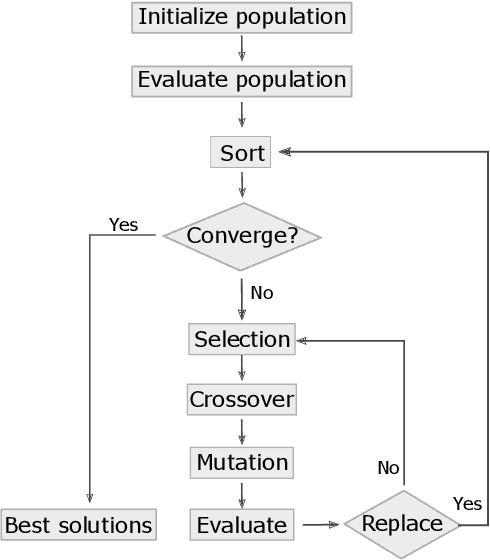
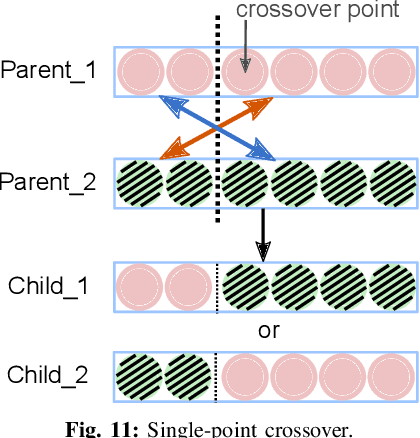
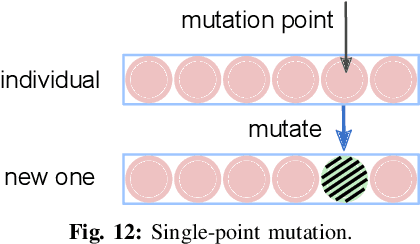
Abstract:Binary neural networks (BNNs) show promising utilization in cost and power-restricted domains such as edge devices and mobile systems. This is due to its significantly less computation and storage demand, but at the cost of degraded performance. To close the accuracy gap, in this paper we propose to add a complementary activation function (AF) ahead of the sign based binarization, and rely on the genetic algorithm (GA) to automatically search for the ideal AFs. These AFs can help extract extra information from the input data in the forward pass, while allowing improved gradient approximation in the backward pass. Fifteen novel AFs are identified through our GA-based search, while most of them show improved performance (up to 2.54% on ImageNet) when testing on different datasets and network models. Our method offers a novel approach for designing general and application-specific BNN architecture. Our code is available at http://github.com/flying-Yan/GAAF.
 Add to Chrome
Add to Chrome Add to Firefox
Add to Firefox Add to Edge
Add to Edge